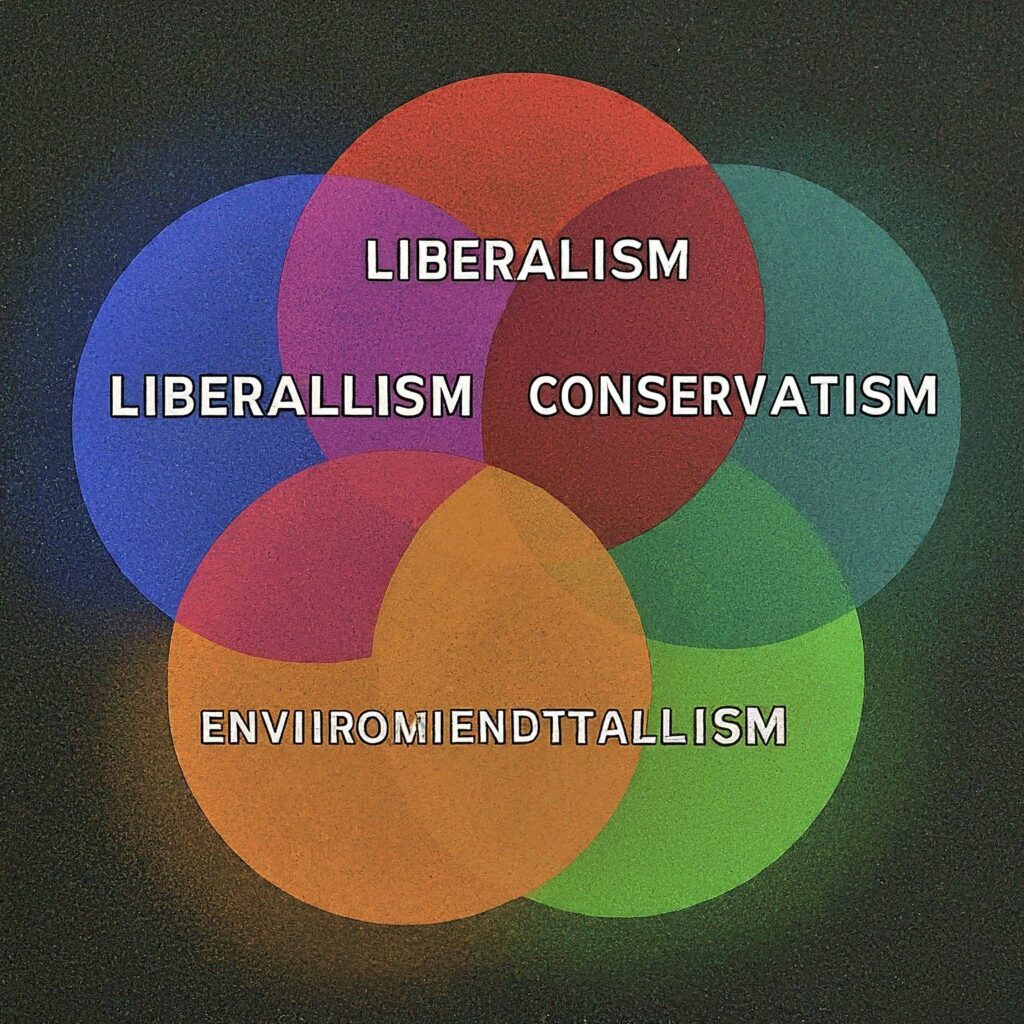The study of Dichotomy and Dualism is a crucial aspect in understanding the division of concepts in geography. Dichotomy refers to the division of a concept into two distinct parts, while dualism refers to the separation of two distinct concepts. In this article, we will discuss the meaning of dichotomy and dualism, their importance, and their applications in geography.

Table of Contents
What is Dichotomy?
Dichotomy is a term used in geography to describe the division of a concept into two distinct parts. It refers to the separation of a single concept into two opposing or complementary parts. For example, the dichotomy of urban and rural refers to the division of the concept of settlement into two distinct parts: urban and rural areas.
Dichotomy refers to the division of something into two distinct and often opposing categories or groups. It is a concept commonly used in many areas of study, including philosophy, politics, and science. It is used in various fields like, philosophy, science, literature, and social studies, to categorize, analyze, and contrast two opposing elements.

For example, a political dichotomy is the classification of political opinions into two opposing groups, such as left-wing and right-wing. This dichotomy is based on fundamental differences in beliefs about the role of government, individual rights, and social justice. Another example of dichotomy in science is the classification of living organisms into two broad categories: prokaryotes and eukaryotes, based on fundamental differences in cell structure and organization.

In general, dichotomy is a powerful tool for classification and analysis, but it should be used with caution as it can oversimplify complex issues and exclude nuanced perspectives.
What is Dualism?
Dualism is a term used in geography to describe the separation of two distinct concepts. It refers to the division of a concept into two separate and distinct parts that are often seen as opposites or complementary. For example, the dualism of nature and culture refers to the separation of the concept of the environment into two distinct parts: natural and cultural environments.
Dualism is a philosophical concept that suggests that there are two fundamentally different types of substances or entities in the universe. Generally, it is the belief that the mind and body are two separate entities, and they are not reducible to each other. Dualists believe that the mind and body interact in some way but remain distinct entities.

There are various forms of dualism, including substance dualism, which holds that the mind and body are separate substances, and property dualism, which holds that the mind and body are different properties of the same substance. In substance dualism, the mind is typically thought of as non-physical, whereas the body is considered physical. Some philosophers have also proposed other forms of dualism, such as epistemological dualism, which holds that there are two distinct types of knowledge or ways of knowing.
Dualism has been influential in many areas of philosophy, including metaphysics, epistemology, and philosophy of mind. It has also been a subject of debate and criticism, with some arguing that it is incompatible with modern scientific understanding of the mind and brain.
Why is Dichotomy and Dualism Important?
Dichotomy and dualism are important in geography for several reasons. Firstly, they provide a useful tool for categorizing and analyzing geographical concepts, allowing geographers to understand the complex relationships between physical and cultural processes.
Secondly, they provide a framework for comparative studies between regions, allowing geographers to identify common trends and patterns and to make meaningful comparisons between areas.
Thirdly, they are important for regional planning and decision-making, as they provide a basis for understanding the complexities of the earth’s surface and the various factors that contribute to the diversity of landscapes.
Applications of Dichotomy and Dualism in Geography
Dichotomy and dualism have a wide range of applications in geography and other related fields.
- Environmental Geography: Dichotomy and dualism are important in environmental geography, as they provide a basis for understanding the relationship between the natural and cultural environments. For example, the dichotomy of wild and cultivated landscapes provides a framework for understanding the relationship between natural and cultivated environments.

Nature and Curated Environment - Economic Geography: In economic geography, dichotomy and dualism are used to study the relationships between economic activities and physical and cultural processes. For example, the dualism of market and non-market economies provides a framework for understanding the relationship between economic systems.
- Political Geography: In political geography, dichotomy and dualism are used to study the relationships between political systems and physical and cultural processes. For example, the dichotomy of developed and developing countries provides a framework for understanding the relationship between political systems.
Comparison of Dichotomy and Dualism
| Dichotomy | Dualism |
|---|---|
| Division of something into two distinct and often opposing categories or groups. | Belief that reality is composed of two fundamental and opposing principles or substances. |
| Used in many areas of study, including philosophy, politics, and science. | Primarily used in philosophy and theology. |
| Often used as a tool for classification and analysis. | Used to explain the nature of reality and the relationship between mind and body. |
| Examples include left-wing and right-wing in politics, and prokaryotes and eukaryotes in biology. | Examples include the mind-body dualism of Descartes, and the good-evil dualism in religion. |
| Can oversimplify complex issues and exclude nuanced perspectives. | Can be criticized for positing an oversimplified or false view of reality. |
| Focuses on the division of things into two categories. | Focuses on the relationship between two opposing principles or substances. |
In summary, Dichotomy and Dualism share some similarities, but they are distinct concepts used in different contexts and with different purposes.
In conclusion, dichotomy and dualism are important concepts in geography that provide a basis for understanding the division of concepts and the relationships between physical and cultural processes. With their wide range of applications, they provide a useful tool for environmental analysis, economic analysis, political analysis, and regional planning. By dividing concepts into distinct parts, dichotomy and dualism allow geographers to gain a deeper understanding of the complexities of the earth’s surface and to make informed decisions about its use and management.
